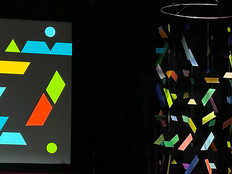College Sports Practice Social Distancing by Pivoting to Esports
Universities have taken many approaches to try to make the pivot to esports work. Some, for example, have taken their sports leagues online.
“Some of the schools with dedicated programs were able to outfit their esports teams at home with equipment,” McAllister says. For instance, Division I schools such as Boise State, University of California, Los Angeles and University of California, Irvine were able to compete in a Rocket League tournament in April.
Schools with emerging esports programs, however, often can’t afford to buy the necessary equipment that would allow students to continue playing competitively at home. In this situation, the schools have promoted esports as a communal activity rather than a competitive one.
MORE ON EDTECH: Learn how Intel helps universities expand their esports impact.
“The emphasis is on community and play, rather than competition,” McAllister says. “So whatever platform you’ve got — Xbox, PlayStation, PC — whatever it is, let’s just get together and play.”
Esports Can Help with Post-COVID Student Recruitment
Esports has always served as a powerful recruitment tool. By offering competitive esports teams and scholarships, small and midsized colleges have had success using esports programs to help their schools stand out from the competition. And during a time when enrollment is dropping due to COVID-19 uncertainties, esports is becoming more important than ever for higher ed institutions.
Despite operating remotely, many colleges are still moving forward with plans to build esports arenas. McAllister says he has helped universities complete about a dozen esports-related projects recently, with schools “installing anywhere between 10 to 50 PCs on campus because they anticipate having students in the fall.”
Esports was a $1 billion industry in 2019, so it makes sense that many schools are working on incorporating esports into their curricula. The Northern Illinois University College of Education, for example, announced it will begin offering an Esports Industry Professions minor starting in fall 2020.
And esports is not simply driving enrollment. According to Karla Carney-Hall, vice president of student affairs at Illinois Wesleyan University, esports is helping her school recruit higher-caliber students. “These are students who want to play competitively,” she says. “You can come to college and play pickup basketball, but if it’s important to you, and you want that recognition and validation, you will want to play at a more competitive level. That’s what the varsity experience is, and that’s how we recruit for esports.”
University of Utah’s Dimick reports a similar effect. “The reason colleges are motivated to be involved in this,” he says, “is because they know that competitive esports appeals to exactly the kind of students they want — the STEM students with high GPAs, the international students, the engineers.”
Regardless of how or when campuses open back up, esports programs are here to stay.
“From the universities’ perspective, not a whole lot has changed. And because of an economic downturn, they need to be even more competitive than they have been,” McAllister says. “There is a direct correlation between having an esports program and students wanting to come to your school.”











